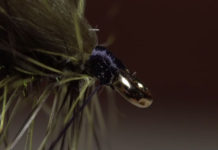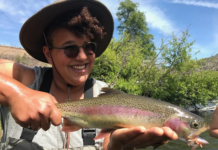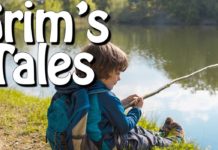Next time you drive across the Oregon Inlet Bridge, take a look down and toward the sound. Is anybody kayak fishing with a fly rod? If so, chances are Capt. Harry Meraklis is nearby, directing them and showing them where and how to cast.
Meraklis is a 100% fly fisherman and has been guiding fellow fly anglers on the Outer Banks for 11 years.
He grew up in the Pittsburgh area. “I actually tied flies at about 12 years old in our basement in Pittsburgh, PA. My dad Sam would wake me up at 4 a.m. on weekends and we were off. Mostly we’d be fishing from his johnboat mounted on the top of his painting van.”
Mr. Sam has been gone for a long time, “… but if he knew — and I hope he does — that I was a fly-fishing guide at Oregon Inlet he would light up in a smile.”
Later on, Meraklis met another friend who influenced him quite a bit.
“My friend Don Beideman reignited my passion for fly fishing streams in central PA later in life, and I have not picked up a spinning rod in quite a while,” Meraklis said.
Even though he grew up in western Pennsylvania, saltwater fishing has been Meraklis’ passion for a very long time.
“My dad started bringing our family to the Outer Banks in 1960. We would wade fish Oregon inlet and surf fish,” said Meraklis.
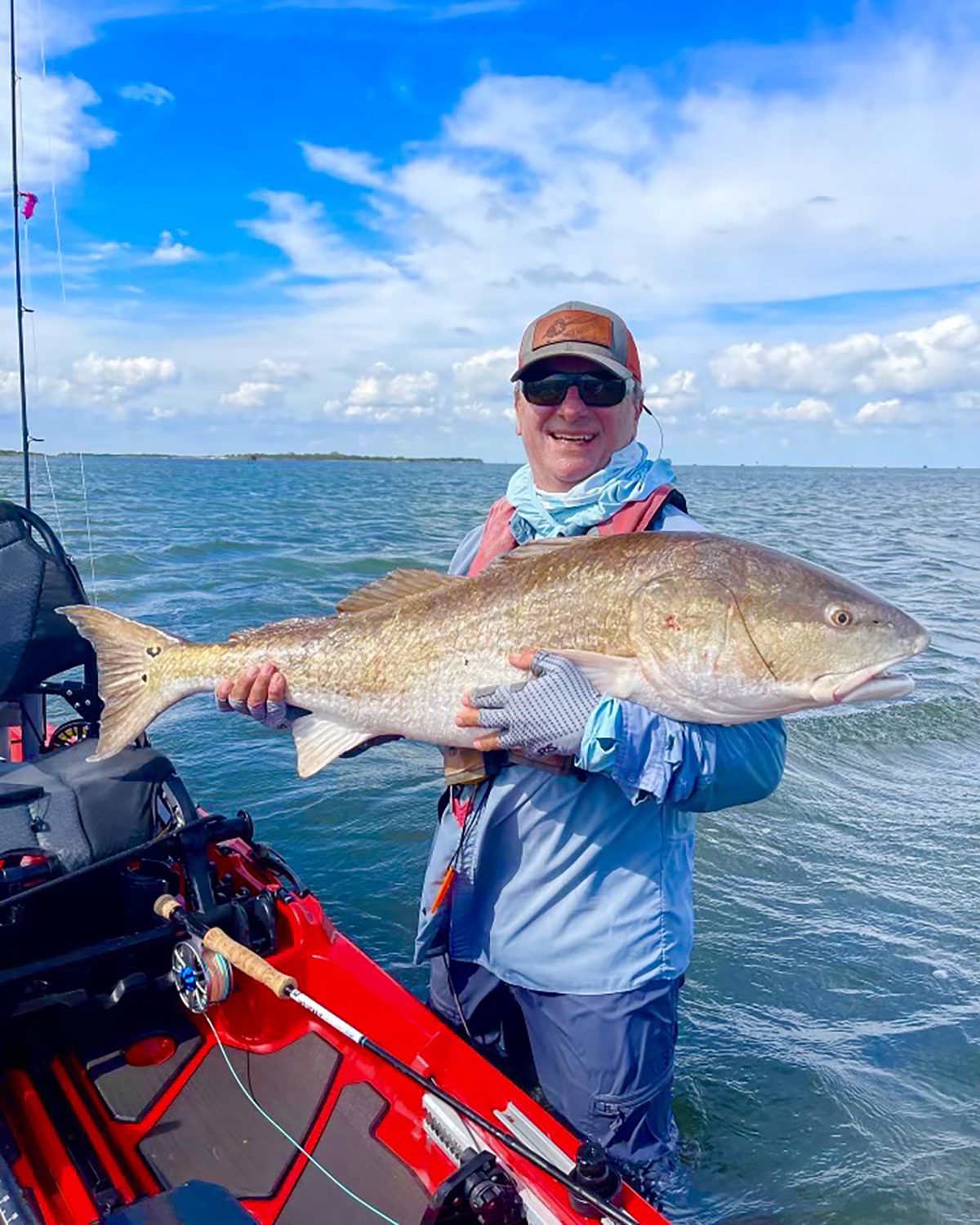
He couldn’t stay away and later bought a home in Kitty Hawk, where he would eventually move full time.
“I’ve been a homeowner and frequent visitor of the Outer Banks for most of my life and have lived in Kitty Hawk for well over a decade,” said Meraklis, who added that he’d been guiding ever since. “I work for OBX On The Fly, a fly shop and outfitter located in Manteo, and am a fly guide and instructor. I primarily wade fish from kayaks.”
Meraklis will usually launch from the Oregon Inlet Fishing Center and uses motorized kayaks to hit a shopping list of spots that are within easy reach.
“Electric motors extend our range and get us from point to point swiftly,” he noted.
Meraklis’ target species are the usual suspects for inshore fishing in North Carolina: redfish, speckled trout, flounder, striped bass, sheepshead and bluefish.
“I love to hunt the flats with a fly rod,” he said.
Meraklis offered a couple of tips for those wishing to try fly fishing from a kayak.
“A stripping basket can be the ticket when drift fishing in a kayak. We frequently have stiff winds that can wreak havoc with your line management by blowing it out into the water and tangling it,” he said.
As anyone who has done it can tell you, having a knot in your fly line when you finally see your prize swimming in front of you can make you say things that would render your grandma very disappointed. He added that if you don’t have a stripping basket, “A wet towel draped over the floor of the kayak at your feet can also be quite effective in reducing tangles.”
The windy conditions on the Outer Banks can be a challenge for those used to fly fishing in small streams, but there are tricks to help a caster unused to the windy conditions.
“A water load cast is when you lay the fly line onto the water and use that tension to flex your rod. This keeps the wind from blowing your line all over and can be a quick and effective way to deliver your fly.”
Keeping your line tight to the fly is imperative in detecting strikes and setting the hook.
“It is really important to keep your rod tip down and point in the direction of the fly to increase your chances of a good hook set and catch more fish,” advised Meraklis.
Another tip from Meraklis for those who have never saltwater fly-fished before: “Practice your cast before you get out here! The longer you can cast, the more water you can cover, which means more time your fly is in the water.”
Meraklis has even devised his own fly. “I created the Dirty Harry about a decade ago and have not used anything but that fly since. It imitates any of the local bait merely by varying the color and how it’s fished,” he said.
Crawl it along the bottom to imitate a crab, move it quickly through the water when minnows are on the menu, and when shrimp are around, a twitch-twitch-pause retrieve will do the job. These flies are sold at the fly shop in Manteo and Harry donates $1 from every sale to the North Carolina Coastal Federation’s Adopt an Oyster program.
Meraklis offers one last tip for light tackle anglers in his exceptionally busy area.
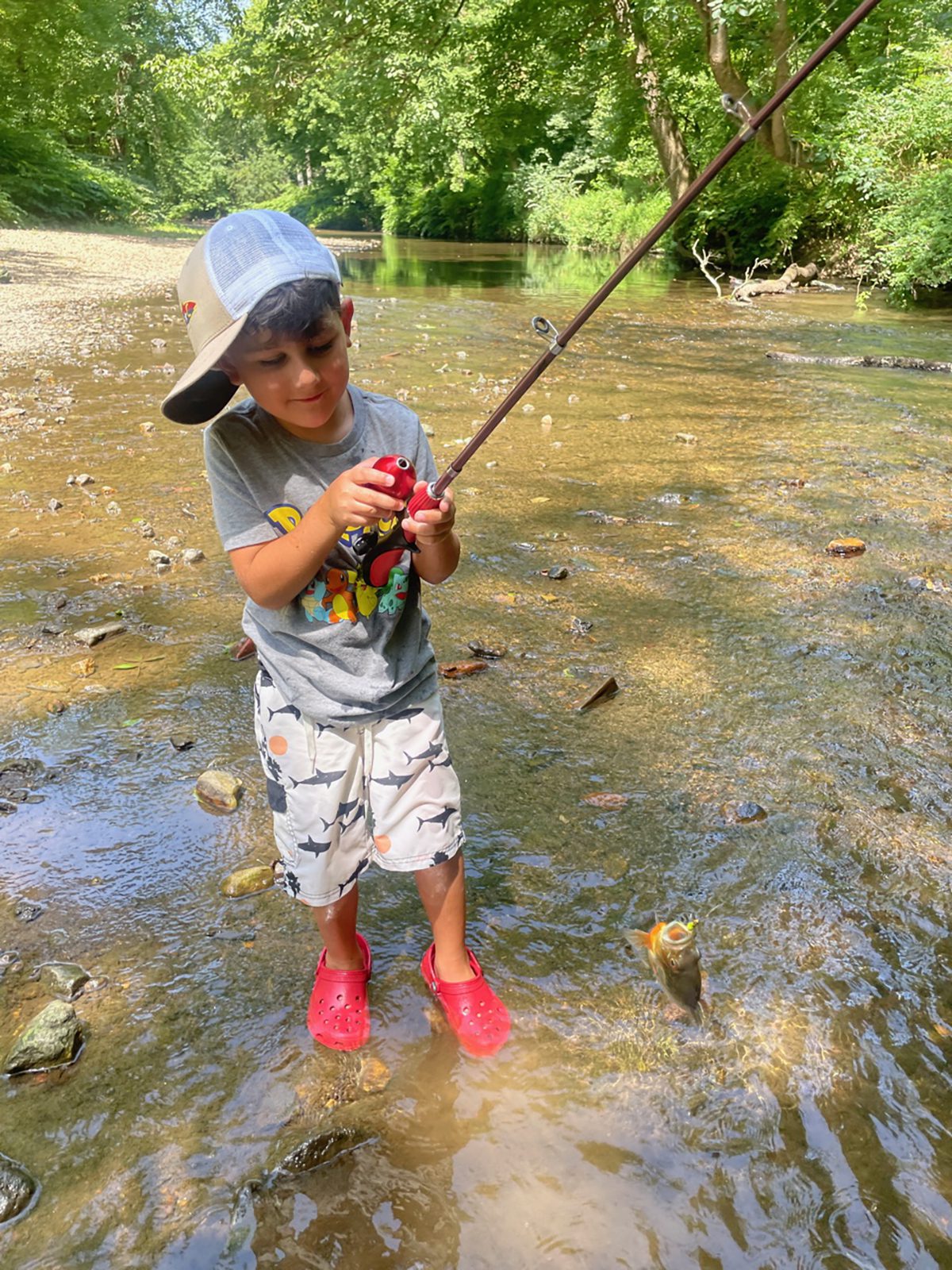
“At Oregon Inlet, avoiding boat and kayak pressure is key. It does no good to find fish, only to have them shut down by inexperienced or inconsiderate anglers,” he advised.
And one bit of advice that can help to consider no matter where or how you fish: “Picking the right time on any particular day, in conjunction with a tide that has good current flow is key. As a wade fisherman, hunting the flats in a stealthy manner, and committing to a good flat can pay off in a big way.”
Sharing these nuggets of wisdom is a family tradition. As Meraklis’ father did, he has passed that love down to his sons and grandson. When you teach them right, they will get the love themselves.
“My grandson cannot wait for me to visit so he can go fishing with ‘PaPou,’” Meraklis said proudly of Sammy, who lives near Philadelphia. “The kid’s got mad skills for a 5-year-old. He has his own Trout Unlimited tackle bag full of goodies and loves to select his next lure or fly.”
Credit: Source link






















